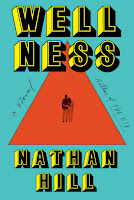“End of watch is what they call it, but Hodges himself has found it impossible to give up watching"
I'm an avid reader, so it's not uncommon for a few books to slip through the cracks. In anticipation of Stephen King's latest release, Holly, which came out earlier this month, I had a realization—I had missed reading End of Watch, the final installment in the Bill Hodges Trilogy, and the third book featuring the character Holly Gibney. It's a bit puzzling, considering I had already read the first two books and also enjoyed The Outsider and If It Bleeds. Somehow, I managed to overlook this particular story. Determined to correct this oversight, I promptly borrowed End of Watch from my local library. I can confidently say it provides a satisfying conclusion to the narrative that commenced with Mr. Mercedes.
Brady Hartsfield, the deranged mastermind behind the horrifying Mercedes Massacre, has languished in a vegetative state ever since his nefarious plans to bomb a massive concert were thwarted by the unlikely heroes Bill Hodges and Holly Gibney. Holly, in particular, is the one responsible for delivering blows to his head that left him seemingly devoid of cognitive function. Hodges, with his keen instincts, refuses to be deceived. He recognizes true evil when encountering it and remains convinced that the monster is still lurking "in there" somewhere within Hartsfield. The vacant stares and the wheelchair-bound existence do little to convince him otherwise.
Hodges hasn't quite settled into retirement. The cop in him never truly fades. Even in his new role as a private detective, he finds himself yearning for the thrill of the chase. When his former partner calls upon him and Holly to investigate a suicide victim connected to the original Mercedes case, Hodges is chilled by what he discovers. While the police perceive it as a straightforward, self-inflicted death, Hodges cannot shake the gnawing suspicion that Hartsfield may somehow be linked to this tragedy. Could it be possible that the malevolent presence is orchestrating terror from the confines of his hospital bed?
I've always admired how Stephen King used the first two books in the Bill Hodges series to illustrate that true horror can exist in the real world. Instead of relying on supernatural monsters, these stories centered around an ordinary man determined to unleash evil upon the world. It was a chilling departure from King's usual style and deepened my appreciation for his storytelling skills.
End of Watch takes a slightly different tone from the first two books. While it continues to explore profound themes like the battle between good and evil and the struggle to let go of one's past, King introduces a new element to the narrative. Without giving away too much, a supernatural aspect is woven into the story, adding an eerie new layer to the tale. If I had read this book in its intended sequence within the series, I might have found this shift into the realm of fantasy somewhat unexpected. It arrives without a clear explanation, requiring readers to simply accept it and enjoy the ride. However, when considered within the broader context of this literary world, including the newer books featuring Holly, the introduction of the supernatural element begins to make more sense.
Regardless of the subject matter, End of Watch is a fitting conclusion to the Bill Hodges series. It kept me engrossed in its pages, and I was apprehensive about what terrors would unfold right up to the very end.
For more information, visit the author's website, Amazon, and Goodreads.
(2023, 61)












